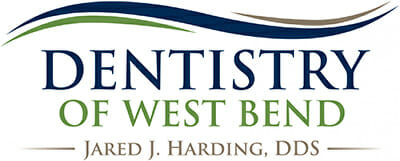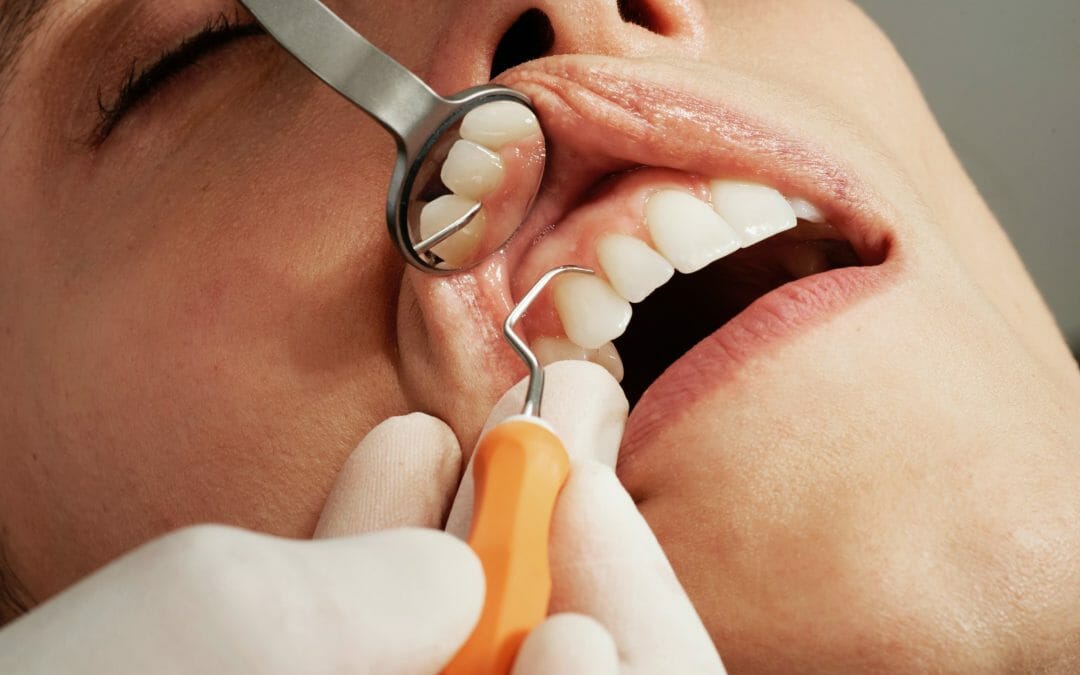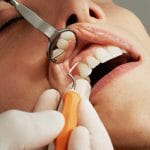Preventive dentistry is incredibly important when it comes to maintaining a healthy and beautiful smile for life. When combined with healthy oral hygiene habits practiced at home, preventive treatments received at the dentist’s office can help you keep your teeth and gums strong and healthy throughout your life by preventing problems from developing and intervening early before any issues progress further and become more serious.
Preventive Dentistry Services to Keep Your Teeth Clean and Healthy
Routine Dental Exams
It is recommended that most healthy, adult patients visit the dentist for a comprehensive dental exam and oral cancer screening at least once a year. During this exam, the dentist closely evaluates the patient’s teeth, gums, and other oral structures in addition to performing a cancer screening.
This examination is intended to help us detect early signs of potential problems so that we can address them early while they are still easy to treat. We might also recommend taking a set of dental x-rays to screen the patient for signs of issues that are not visible to the naked eye.
Prophylactic Dental Cleanings
Most patients require a professional dental cleaning twice a year for adequate maintenance of their teeth and gums. More frequent cleanings might be recommended if you are diagnosed with an oral health problem such as periodontal disease.
During a professional cleaning, a dental hygienist uses special tools to scale and polish the teeth, removing plaque and tartar that have accumulated on the surface. This cleans the surface of the teeth and keeps the gums healthy by making it more difficult for harmful bacteria to stick to their surfaces and in between the teeth and gums.
Professional Fluoride Treatments
Patients of all ages can benefit from professional fluoride treatments that help fortify the tooth enamel to prevent tooth decay and cavities.
Dental Sealants
Dental sealants are another highly effective and simple preventive treatment that protects a patient’s molars from tooth decay. Sealants are thin layers of resin that are painted onto the surface of a patient’s molars. Sealants smooth out the chewing surfaces of the molars, protecting them from decay and also making them easier to keep clean.
Mouthguards
There are two kinds of mouthguards that are useful in preventive dentistry: athletic mouthguards and nightguards. We recommend athletic mouthguards for anyone who participates in sports or athletic activities that pose a risk of injuring your mouth or face. If you play sports that involve objects like balls or sticks or pose a risk of falling, then an athletic mouthguard can protect your teeth, soft tissues, jaw, and head from injury.
Nightguards are usually recommended for individuals who suffer from sleep bruxism, a condition with which individuals clench their jaws and/or grind their teeth while they sleep. A mouthguard worn at night can help prevent you from clenching your jaws and protect your teeth from the excessive wear and tear that bruxism puts on them.
Pediatric Dentistry
Pediatric dentistry focuses on providing specialized treatment to infants, toddlers, and children. These services are designed to meet the unique needs of children during each stage of development. Pediatric dentistry ensures children develop healthily and normally with interceptive treatments when needed. Additionally, pediatric dentistry ensures children learn to develop good oral hygiene habits while understanding the importance of visiting the dentist.
A child should have his or her first dental exam by the time they reach one year of age or have their first tooth erupt – whichever happens first.
Healthy Habits to Help Prevent Oral Health Problems
There are also several ways you can care for your teeth outside of the dental office to ensure your teeth are clean and healthy.
Brush Regularly Using the Right Technique
You should brush your teeth for two minutes at least two times a day. Be sure to use the right technique: hold your brush at a 45-degree angle to your teeth for optimal gum cleaning and brush with very gentle pressure so as not to damage your tooth enamel or gum tissues.
We recommend using an electric toothbrush to ensure you brush the proper amount of time with the right pressure and achieve a thorough clean each time.
Additionally, your toothbrush or electric toothbrush head should be replaced on a regular basis, whenever the bristles appear worn or no longer stand up straight.
Floss Regularly Using the Right Technique
You should floss at least once a day. Holding the floss to create a “U” shape that hugs the contours of each tooth, be sure to floss in each of the crevices between your teeth, being careful to glide the floss gently on either side of the small peak of gum tissue that pokes in between.
Eat a Healthy Diet
Eating a balanced diet that is rich in vitamins and minerals can also help support good oral health. Look for foods that are high in fiber, minerals, vitamins, and antioxidants that can reduce general inflammation while also supporting the strength of your teeth from the inside.
Don’t Chew on Ice or Hard Objects
You can also avoid a lot of damage to your teeth by trying not to chew on hard objects (pens or pencils) or on ice. This puts excessive wear on your tooth enamel which can lead to tooth decay, chipped teeth, broken teeth, and damage to dental appliances.
Comprehensive Preventive Dentistry in West Bend
At Dentistry of West Bend, we’re proud to provide comprehensive preventive dentistry to patients of all ages. We customize individual treatment plans that include a range of services tailored to meet each patient’s unique needs based on their age, medical and dental history, and treatment preferences. To learn more about the importance of preventive dentistry and developing good oral hygiene habits, we welcome you to schedule an appointment with Dr. Jared Harding at Dentistry of West Bend today.



Recent Comments